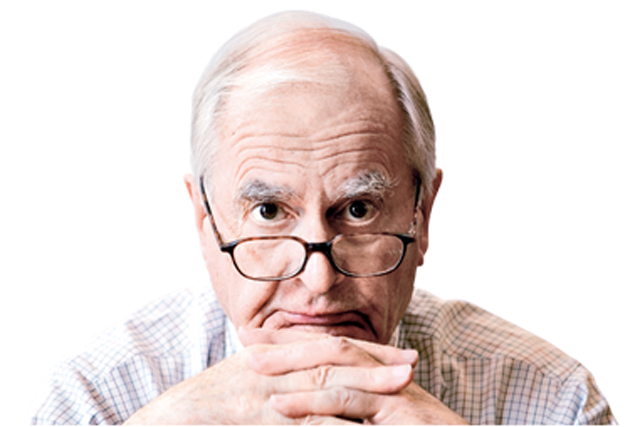I find there is still an unwillingness to work flexibly, particularly from junior staff members who don’t want to appear willing to skive, even though we’ve found it really does help productivity.
Like most people, I’m riddled with prejudice. Some of my prejudices I can identify; most of them I can’t. (At least, I assume I can’t but I can’t be sure I can’t because I don’t know which they are.)
But I do know I’m prejudiced against any question that starts: "Is it time to force…" Even without reading another word, my answer is no.
I sometimes wonder if we appreciate just how jammy our chosen trade is: full of really interesting, really eccentric people; an extremely serious occupation in that we are responsible for spending millions of other people’s money, yet instinctively know that the best way to get things right is often to discard the serious, at least for a time, and be deliberately irreverent, consciously contrary.
A good advertising office is much more than an office. It’s also part-playground and part-pub. If someone’s got a report or a thesis to write, they may well want to stay at home to write it – but that should be their choice.
Others will find home, where a front door can be closed on all things office, a deadening, guilt-inducing place to be bound to the laptop – and will much prefer to find a room with a door in some obscure part of the pub and the playground and be stimulated by the knowledge that, all around them, noisy, opinionated people are doing difficult, unpredictable and, as often than not, eventually futile things. That may be much the best place for the mind to feel frisky.
You talk about productivity as if you were running a gasket factory. You’re not. The only measurements of productivity that can be imposed on an agency are derived from meaningless numbers. If believed and institutionalised, they can bring a healthily chaotic company to its knees in less than a generation.
Your interpretation of flexible working is an unorthodox one. It seems to mean forcing your people to conform to preordained work patterns, whether they like them or not. My own belief is that people are most likely to do good work, more often than not, if they can choose for themselves where and when they do it. In other words, flexibly. But then I’m prejudiced.
When’s the last time you saw an ad that made you honestly wonder: ‘How did they come up with that?’ Is everything just becoming a bit creatively safe nowadays?
The only times I’ve ever honestly wondered "How did they come up with that?" have been when I’ve first seen ads of bewildering irrelevance. I’m mystified by the thought processes that lead to bad advertising.
By contrast, when you first see an exceptionally good ad, it’s instantly apparent how someone came up with it. What’s galling is not just the fact that it wasn’t you who came up with it but the lurking internal suspicion that, given the identical brief, it still wouldn’t have been you who came up with it.
As Edward de Bono wrote all those years ago: "Sometimes you have to get to the top of a mountain to find the shortest way up." That’s what most of the best ads do.
In any list of the best TV ads ever, "points of view" for The Guardian and "JR Hartley" for Yellow Pages are bound to feature. Neither demanded one whiff of courage on the part of their respective clients.
They didn’t owe their excellence to breaking boundaries or executional extravaganzas; once those ideas had been conceived – imagined – and then transcribed into scripts, they needed only faithful, sensitive translation into film. Yes, they were wonderful. And they were also, and utterly, creatively safe.
Any decline in the overall standard of TV commercials, which may or may not exist, has little or nothing to do with the level of risk that clients are invited to bear. It has everything to do with the quality of the ideas that first find shape inside somebody’s head.
Dear Jeremy, Can media agencies be creative?
Where have you been for the past 15 years?


